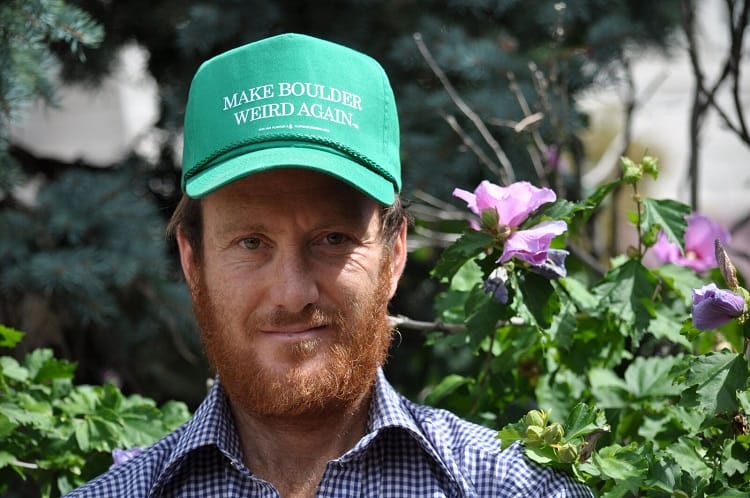Waylon Lewis: Elephant Journal

And when we travel that path with another, there will be times when we need support from our partner to focus on other things—maybe we’re busy working, or raising children, or traveling, or changing. There’s a false notion of work-life balance that many of us buy into, and then fail at, and then feel guilty about. But every mother or father knows that “balance” isn’t static. We need to focus 80% on parenting, sometimes. We need to focus 80% on building a business, sometimes. The other 20%–we eat, we exercise, hopefully, we meditate. But it’s not always gonna be 50%-50% work-life balance. It’s okay to focus.
OMTIMES: What’s one thing yogis could all do that we’re not doing right now?
Waylon Lewis: I just did a video with Dean of Jade Yoga mats. It really struck me—I’ve blogged about it for years, but it really hit home—that most of us do yoga on toxic, PVC mats. The foundation of our path is literally toxic—bad for our planet, our air, and us. It’d be great to see yogis stop using toxic mats and stop using toxic to-go cups for our coffee. I’d love to see yogis become as passionate about healthy eco-responsibility: walking, biking, instead of driving; offsetting what we can’t do without; going zero-waste; throwing in a little meditation before and after our yoga practice. That alone could really help to begin to transform our society and our entire world.
OMTIMES: You’ve been in the “yoga industry” for many years. What’s the most controversial thing about yoga that no one knows about?
Waylon Lewis: People know, they just don’t care—yet. Most big yoga companies—Lululemon, Manduka—are creating mostly-toxic products. PVC and plastic are not good for us, our children or our planet.
This is less widespread, but predatory yoga teachers continue to get away with sexual abuse.
OMTIMES: You’ve been hugely involved in the eco-friendly mindful kinda movement for 14 years, now, with an elephant. How has the US? How have folks changed their approached to mindfulness?
Waylon Lewis: It’s good and bad. Mindfulness or meditation was considered weird and hippie-dipped 14 years ago. Now it’s hip, it’s an app or 10 apps, it’s commonplace and commonsense. That’s great. The downside is if it becomes just another tool for speedy Americans to use and talk about and feel special about. In Buddhism, we’d called that “spiritual credentials,” or “spiritual materialism.”
We have to allow ourselves to walk the path of waking up and serving others wholeheartedly. Mindfulness is more than a trend or an app. It’s as basic to life as, say, exercising or eating good, real food. If it gets used by day traders or entrepreneurs or the military or ourselves without the intention to be of benefit, it’s just gonna help us create harm or chaos or speed better. If instead, we do it wholeheartedly, we will find our lives transform.
But even trendy, superficial, marketed mindfulness is okay, perhaps. In Buddhism, the awareness or insight we gain through meditation is described as a self-burning flame or a self-cutting sword. If we apply ourselves to meditation each morning and evening, we will begin to soften, and become more genuine, less caught up in our storylines and schemes.
All we have to do is come back to the present moment, again and again. It is, as Donald Trump might say, the best moment. The biggest moment. The only moment where anything good and true has ever happened.
Connect with Waylon Lewis at elephantjournal.com
OMTimes Magazine is one of the leading on-line content providers of positivity, wellness and personal empowerment. OMTimes Magazine - Co-Creating a More Conscious Reality





